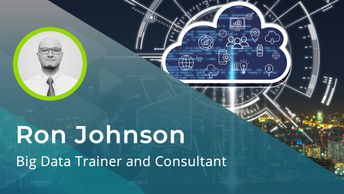Aspire Serverless Deployments for Developers Serverless Deployments Track 2: Developing Serverless Applications in the Cloud
Google Cloud Platform (GCP) offers several tools for serverless application development and deployment. Use this course to learn how to take advantage of GCP serverless compute, storage, and app services.
Investigate the GCP tools for hosting applications and examine how Google Cloud Functions and App Engine work.
Explore the pros and cons of Firebase, the benefits of using Cloud Run, the use cases of Cloud Datastore, and the GCP serverless products for building apps for analytics.
Moving along, explore GCP serverless microservices and how serverless deployments can improve DevOps productivity.
Finally, learn how to deploy Node.js Cloud Functions, applications to App Engine, and containers from a Container Registry repository to Cloud Run. Store and query data in Firestore in Datastore mode and create streaming pipelines.
When you're done, you'll be able to use GCP tools to develop scalable serverless applications efficiently and successfully.
Investigate the GCP tools for hosting applications and examine how Google Cloud Functions and App Engine work.
Explore the pros and cons of Firebase, the benefits of using Cloud Run, the use cases of Cloud Datastore, and the GCP serverless products for building apps for analytics.
Moving along, explore GCP serverless microservices and how serverless deployments can improve DevOps productivity.
Finally, learn how to deploy Node.js Cloud Functions, applications to App Engine, and containers from a Container Registry repository to Cloud Run. Store and query data in Firestore in Datastore mode and create streaming pipelines.
When you're done, you'll be able to use GCP tools to develop scalable serverless applications efficiently and successfully.
| Objectives |
|---|
Serverless App Development: Implementation in Google Cloud Platform
|


